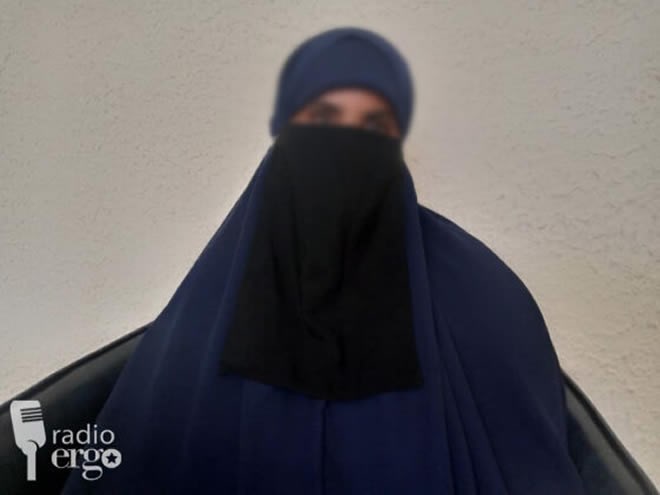
Saturday February 27, 2021

The widow facing stigma in Kismayo/Ahmed Abdi Mohamed/Ergo
(ERGO) – Halima (not her real name) has been living with HIV/AIDS for the past two years in the southern Somali city of Kismayo, where stigma surrounding the virus has led to her being evicted from 10 rented houses.
The widowed mother of six children has been forced to rent two rooms for $50 in a village where no one knows her, but she still fears that one day her neighbours will expose her.
“People tell others that I am living with the virus and when the news spreads to the neighbours, they ask the landlord to evict me,” she said. “Some of the neighbours have told me to my face that I will pass the disease to them if they let me live with them.”
Halima makes around five dollars a day as a cleaner, walking long distances to get cleaning jobs in villages where she can be a stranger.
“The moment a family I am working for comes to know I am living with the virus, they fire me on the spot,” she said.
Halima’s husband died of AIDS two years ago. He had not known he was living with the virus until he became bedridden and was taken to Kismayo general hospital, where he tested positive for HIV. He died two weeks later. Two of his wives also died of the virus shortly afterwards.
Halima moved back to her mother’s home after failing to pay the rent after his death. She went for a test and found herself to be positive. When she shared the news with her parents and her four siblings, they disowned her immediately.
“My mother ordered me to move out after I told her about my status. She said I would pass the virus to her. It was too painful to take in her words. I haven’t seen her and my siblings for two years,” Halima told Radio Ergo.
She currently gets free Antiretroviral drugs (ARVs) from Kismayo Hospital. None of her children is positive but they are still shunned by people accusing them of being infected. She has not managed to afford the fees to send any of them to school, and can only cook for them once a day in the evening.
“I save the leftovers from supper for breakfast and that is how we survive the day,” she said.
Ali Daud Abdi, the chairman of people living with HIV/AIDS in Kismayo, told Radio Ergo that in the past two years 10 people taking ARVs from the hospital had to move away to different towns including Mogadishu after facing severe stigmatisation in Kismayo.
Ali, who himself lives with HIV/AIDS, noted that some patients avoid coming to the hospital for their ARVs. Some ask him to pick up their medicines on their behalf and leave them with a trusted pharmacy for them to collect.
Ali said most people are ignorant about HIV and how it spreads. They believe the virus can be spread by shaking hands, eating together and sharing seats with infected people. He urges more awareness to be carried out.
There are no official statistics on the number of people living with HIV/AIDS in Kismayo, although the general hospital has registered 62 people, including 38 women, 20 men and four children, who are receiving free ARVs.